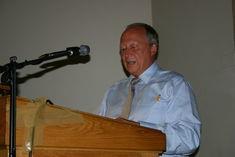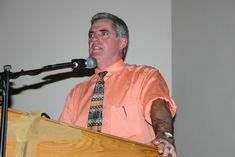


The theme of applying different marketing strategies to exporting fresh produce was recurrent, with a strong emphasis on the need to tap into new markets and provide quality - not quantity to capture a long-term international consumer base.
With an increasing amount of competition from Europe and its neighbours in the southern hemisphere, South Africa has been finding it increasingly hard to succeed in saturated markets, and according to some attendees, has not recognised the need to stop supplying massive quantities in favour of creating quality products that are easily identifiable.
“There is an oversupply, and the pain we’ve experienced in 2005 shows this; but we keep sending produce into these markets. We talk about being competitive, but some of us actually have to do something about this. We talk a lot about making things happen.” Stuart Symington, ceo of the Fresh Produce Exporters’ Forum: “Whoever can hold on long enough by their fingernails will win. It’s sad but it’s a reality that we can’t all survive this. We have to find completely different ways of remaining competitive,” he said.
Roger Manning, EU Strategic Promotions, Inter-Trade International, delivered a similar message, and urged the industry to look for new approaches to marketing. He told delegates that production of fruit and vegetables has been increasing by 3.4 per cent globally and this figure was surpassing consumer demand in terms of volume, but there was still a market share to be had: “Consumers are demanding a wider choice - available all year round and preferred in a fresh and convenient format,” he said.
Roger Jupe, chief executive of UK marketing group, Richmond Towers, took this idea one step further, explaining to delegates that efficient marketing at the point-of-sale in UK supermarkets could open up new opportunities to South African exporters, and that this is currently a neglected area of business: “It’s a sad fact of life that the fresh produce industry only pays lip service to consumer marketing,” he said.
He added that market research could be a valuable tool for the industry and targeting specific groups in the UK would undoubtedly be profitable, explaining that collectively, the higher socio-economic groups ABC1 now made up 55 per cent of the market and marketing should be concentrated on this group specifically: Members of his group go for flavour and variety and they can be influenced by one product over another, but you have to be on their radar. It’s not price that influences them,” he said.
“Retailers do know what works best in-store, but it's better to apply to your own products the things that make the Nestlés of this world successful and this means using marketing expertise,” he said.
He went on to explain that 80 per cent of the ABC1 group stuck to a pre-written list while shopping and the way to reach them was before they reached the supermarkets through advertising.
He explained to South African delegates that 85 per cent of adults in the UK read a newspaper every day, making it an ideal way to deal with the consumer directly: “The message is simple, having a share of the voice creates consumer desire and demand. You need to give them what they see and hear in the media - papers, radio, television,” he said.
“To compete as a producer, for consumers to buy and prefer your products, you need to have a share of voice and be in this message arena. South Africa has long been a much valued seller of quality fresh produce to the UK - they like you,” he said
“Use marketing expertise and effort, intelligence and monies to consistently influence the consumer over the long term...you must use these influences or you are just another fruit or vegetable producer...farmers need to grab the importance of consumer marketing if they want to control their own destiny,” he said.



